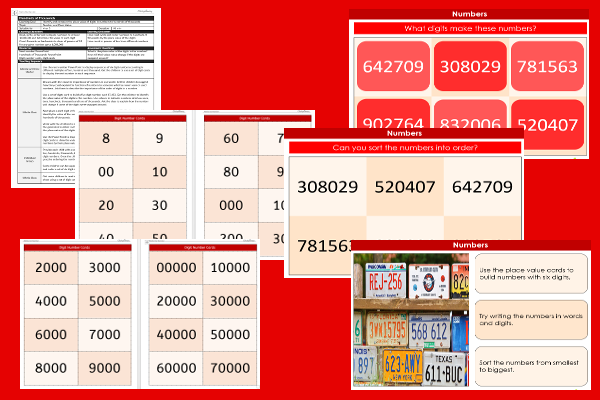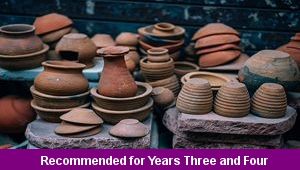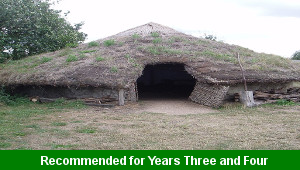Lesson Three – Hundreds of Thousands

This maths teaching pack for Key Stage Two gets the children to identify, describe and compare the place value of the numerical digits in different numbers with matching values to hundreds of thousands.
The class can also practise ordering the numbers that they have generated from smallest to biggest according to the value and position of their numerical digits.
Download this teaching pack including a lesson plan, classroom activities and an interactive presentation to identify, describe and compare the place value of the numerical digits in different numbers with matching values to hundreds of thousands
Activities in this teaching pack include a set of cards to generate and compare a range of different six digit numbers by the place value of their digits by combining different sets of hundreds of thousands, tens of thousands, thousands, hundreds, tens and ones.
The interactive presentation gets the children to explore how to compare the place value of digits in different numbers to hundreds of thousands.
This lesson is part of a maths scheme of work to get the children to investigate, compare and record the place value of the numerals in a range of different six digit numbers according to their positions in each number. There are teaching activities for shared learning, differentiated worksheets to support independent learning and interactive presentations to introduce concepts and key skills.
-

Cities, Towns and Villages
Research and present the history of a range of different buildings and people that are part of the local community using a school exhibition
-

Recycling
Research and present some of the benefits and disadvantages that can be produced when recycling different materials at home and in school
-

Viking Pots
Develop and refine a range of different art and design techniques when working with clay to make pots that represent Viking culture and traditions
-

Bronze Age
Research and illustrate how life in Britain developed and changed during the Bronze Age including the growth of communities and trade
